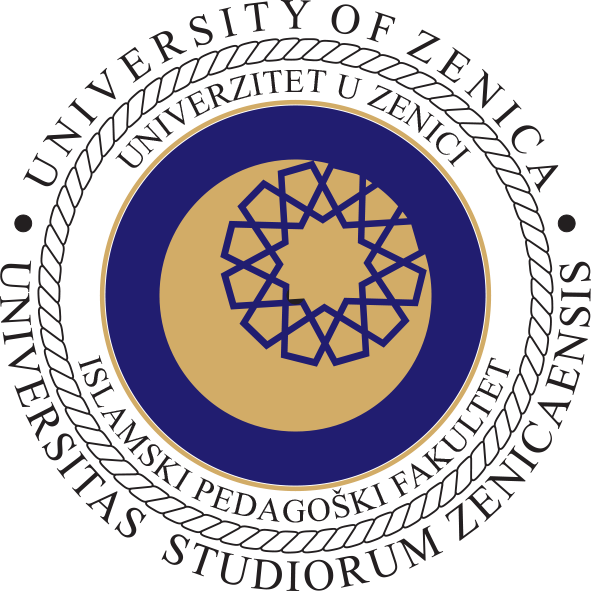VALIDATION OF THE ACADEMIC MOTIVATION SCALE IN A SAMPLE OF HIGH SCHOOL STUDENTS
Academic motivation implies an internal process that initiates and maintains activities aimed at reaching certain academic goals. The objective of this research was to explore the psychometric characteristics of the Academic Motivation Scale (AMS). The sample comprised 157 participants, high school students in the Sarajevo Canton. An item analysis ...
By Anela Hasanagić, Nina Bosankić
TESAWWUF AS A METHOD OF SPIRITUAL EDUCATION
Tesawwuf is an authentic Islamic science like fiqh, tafsir, hadith, and similar. Tasawwuf is not mysticism, nor philosophy, but the essence of Islamic spirituality. Gnosis and education are its two main determinants, so it is embedded in the core of the Islamic concept of education. This was confirmed by Gazi-Husrev bey, a founder of high religious...
By Mensur Valjevac, Mina Valjevac
THE COUNSELOR PERSPECTIVE ON THE ROLE OF PSYCHOSOCIAL CONSULTATION IN THE TREATMENT OF PERSONS SUFFERING FROM SCHIZOPHRENIA
In contrast to the traditional patocentric practice of treating psychotic disorders including schizophrenia, in the modern mental health concept a bio-psycho-social approach is emphasized, being characterized as comprehensive, integrative and above all humane. Psychosocial counseling of schizophrenic patients as a necessary form of intervention occ...
By Elma Begagić, Inela Šehić-Torlaković, Almira Isić-Imamović
A COMPARATIVE ANALYSIS OF THE QUALITY OF LEADERSHIP AMONG IMAMS AND RELIGION TEACHERS
The aim of the paper is to make a comparative analysis of the quality of leadership among imams and religion teachers, i.e. based on the attitudes of imams and religion teachers to conclude whether there is a difference in the frequency of application of different leadership styles. We used a method of theoretical analysis, a descriptive-analytical...
By Derviš Vrešlija, Safet Beganović
THE CHARACTERISTICS OF COOPERATIVE LEARNING IMPLEMENTATION IN ELEMENTARY SCHOOL RELIGIOUS EDUCATION
Exploring the attitudes of students and teachers of Islamic religion, this study aimed to determine the characteristics of the implementation of cooperative learning in comparison to traditional teaching in elementary schools. The research was based on the assumption that there are some features of cooperative learning which make it more effective ...
By Hasudin Atanović, Esad Memić
A DESCRIPTION OF MOTIVATION FACTORS IN MAKTAB TEACHING
The objective of this study was to make a scientific description of motivation factors in maktab teaching by analyzing the attitudes of students, mualims and parents. We supposed that mualims use various strategies and actions to motivate their students. A method of theoretical analysis and a descriptive-analytical method were employed, while the f...
By Safet Beganović, Derviš Varešlija
AN EVALUATION OF FIVE KEY ASPECTS OF THE LANGUAGE ACQUISITION (LA) – A CRITICAL REVIEW OF KRASHEN`S THEORY
The development of Krashen`s theory of second language acquisition has been disadvantaged due to the dispute over its untestable hypotheses. In his Monitor Model Krashen (1981; 1982; 1985) claims that linguistic competence can only be acquired subconsciously, while conscious learning mainly depends on learners’ mood and emotions at the time of lear...
By Mersad Dervić, Nizama Spahić
A REVIEW OF THE BOOK “THE METHODOLOGY OF INTERPRETING THE QUR’AN IN HANAFI MEZHEB” BY DR. SAFVET HALILOVIĆ
Book review...
By Adil Makić
THE IMPACT OF QIRA’ATS ON PRAYER REGULATIONS
Qira'ats present a very significant study of the Qur'an in terms of understanding and interpreting the Qur'anic text. They are not only exotic styles of voice variations and modulation, but an integral part of the language of the Qur'an, its lexical, morphological and syntactic structure. Understanding that aspect is a prerequisite for a correct in...
By Safet Husejnović
THE MOTIF OF DREAMS IN ANDRIĆ’S SHORT STORIES
The motif of dreams, in addition to the motif of a woman and space, is very significant and frequent in Andrić’s literary work. In fact, the motif of dreams presents a different way of realizing the motif of space, Andrić’s characters are equally realized through it, they live and act in it. This is the result of Andrić’s general interest in human ...
By Ikbal Smajlović



